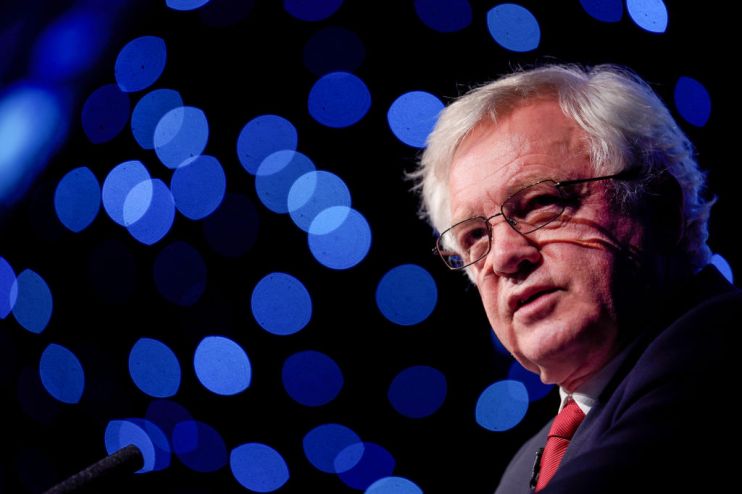David Davis: Online safety bill will be ‘catastrophic’ for freedom of speech

The government’s plans for new laws cracking down on tech companies will be “catastrophic” for freedom of speech, David Davis said today.
The former cabinet minister branded the online safety bill a “censor’s charter”, comparing it to George Orwell’s 1984 and accusing the government of outsourcing the policing of the internet to Silicon Valley.
Ministers have outlined draft laws that will force companies such as Facebook and Google to clamp down on illegal content and establish a duty of care over their users.
Regulation will be overseen by Ofcom, which will have powers to hand down hefty fines for any breaches.
But in a speech today Davis threw his weight behind a new report from Index on Censorship, which warned the bill will create two tiers of free speech online.
Journalists and politicians will retain free speech, the report warned, while ordinary citizens will face increased censorship.
The lobby group argued that the duty of care model was overly simplistic and would force tech giants to delete posts that are legal but considered harmful.
It added that while the aim of removing child sexual abuse, terrorist material and other harmful content was welcome, the bill would in fact make it harded for law enforcement to catch offenders, as platforms would be required to delete valuable evidence.
“The Online Safety Bill is a censor’s charter,” David said at a conference today.
“Lobby groups will be able to push social networks to take down content they view as not politically correct, even though the content is legal. The idea we should force Silicon Valley companies to police Briton’s speech online, seems out of Orwell’s 1984, and is not what our voters expect of us.”
Legal challenge
The long-awaited online safety laws are aimed at holding tech giants responsible for the material posted to their platforms amid concerns they are failing to remove illegal and harmful content.
But the move has sparked a backlash from free speech campaigners, with concerns that platforms will become overly censorious in an effort to avoid fines.
The report also criticised the role of Ofcom as the UK’s first internet regulator, arguing it would create state control over the written word for the first time in over 300 years.
Ofcom has previously insisted that the new laws would not lead to censorship or harm free speech, adding that it is independent of government.
Nevertheless, legal expert Gavin Millar argued the duty of care framework would allow vast amounts of online speech to be deleted and would likely be challenged in the courts.
“The scale of the task given to platforms, and the vagueness of wording in the legislation will force broad ‘technical’ solutions to content moderation – such as overly restrictive algorithms which will make decisions without context, nuance and an understanding of our laws and culture,” he said.